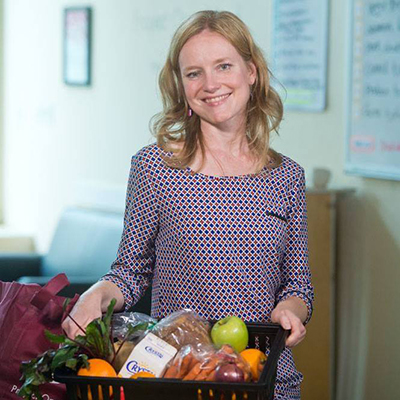
In my blog post 6 Clues for Spotting Bad Nutrition Information, I advised readers to be wary when nutrition information comes from a source other than a Registered Dietitian Nutritionist (also known as an RDN).*
So why should you ask a Registered Dietitian Nutritionist when you are seeking nutrition advice?
A Registered Dietitian Nutritionist has the training to offer nutrition advice based on good evidence from the best research. This is especially important for seniors and those living with critical illnesses, who may be taking multiple medications and undergoing medical treatments. If you follow the wrong nutrition advice, you may end up eating something or taking a supplement that conflicts with one of your treatments.
For example, many people have heard that antioxidants help prevent cancer. Once diagnosed, people with cancer figure that taking dietary supplements with lots of antioxidants will help their cancer treatment. But in fact, the evidence shows that taking antioxidant supplements may keep cancer treatment from working as well as it should.
Anyone can call themselves a “nutritionist,” but unless they have the RDN credential after their name, they haven’t had the same depth of training and experience. Not your local news anchorman. Not your favorite celebrity. Not the author of that book you read. Not even your physician.
An RDN is more qualified than any other professional to offer the right nutrition advice at the right time because they’ve had to do all of the following:
- Get a Bachelor’s degree in nutrition, with coursework approved by the Academy of Nutrition and Dietetics. RDNs typically take two years of coursework focused almost exclusively on nutrition. Before that, they complete coursework in Anatomy and Physiology, Organic Chemistry, Biochemistry, Statistics, Psychology, and more. Among many other things, they learn how the body processes nutrients, how to tell good nutrition research from bad research, and how to effectively counsel people about nutrition.
- Complete a 6- to 12-month practice program in nutrition. In a practice program, an RDN gets hands-on experience in foodservice production, nutrition counseling, medical nutrition therapy in a clinical setting, and more. This could be at a health care facility, a community agency, a food service program, or all of the above.
- Pass an examination about nutrition. This is a 3- to 5-hour examination, ensuring the RDN knows her stuff.
- Complete continuing education in nutrition to maintain the Registered Dietitian Nutritionist credential. 75 hours of continuing education every 5 years ensures that the RDN’s knowledge stays sharp and current.
You can trust your RDN for nutrition advice that’s based on science and evidence.
*Until recently, Registered Dietitian Nutritionists (RDNs) were known simply as Registered Dietitians. You may still see some dietitians using the shorter RD credential after their name, but their qualifications are exactly the same.
For more information, see the following:
- The Academy of Nutrition and Dietetics, the professional association of Registered Dietitian Nutritionists.
- Qualifications of a Registered Dietitian Nutritionist.
- Registered Dietitians Are The Nutrition Experts.
